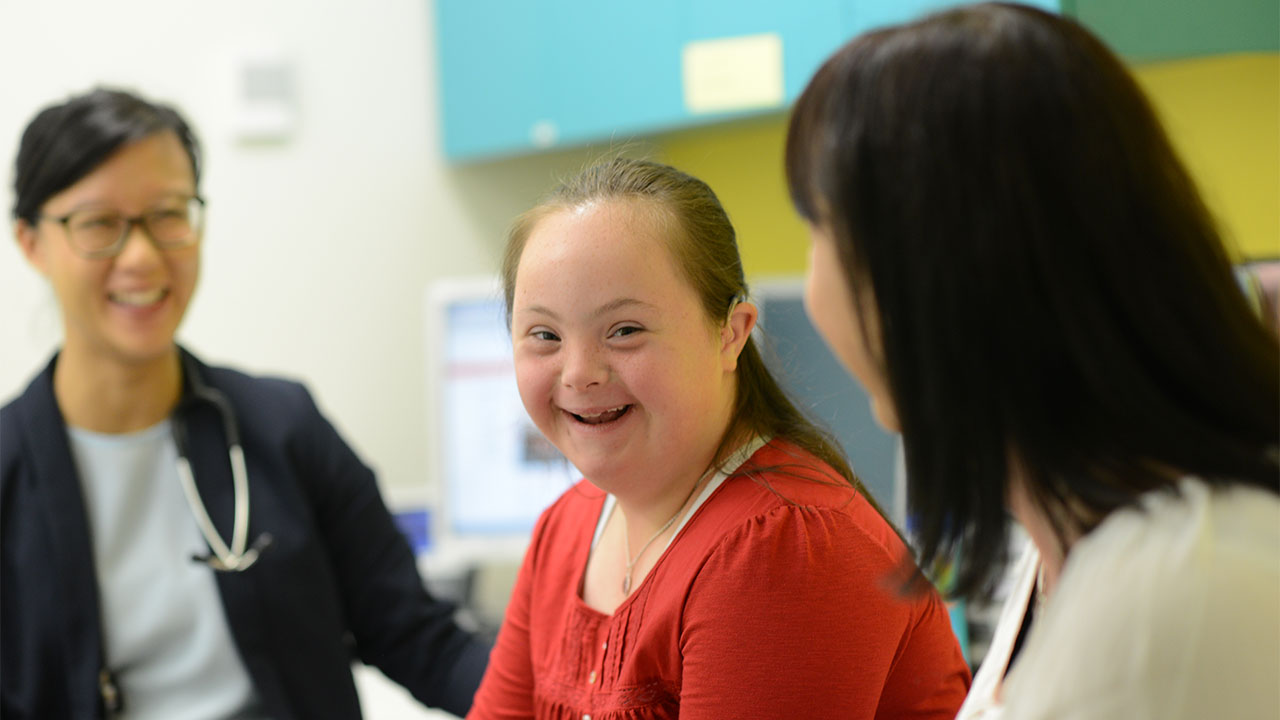Ndis Providers Sydney: The secret to smoother home care transitions
Ndis Providers Sydney: The secret to smoother home care transitions
Blog Article
The Essential Link Between Special Needs Providers and Effective Home Care Solutions
The partnership between impairment services and home care options is vital for boosting the lives of individuals with impairments. Impairment services offer necessary sources and assistance. Meanwhile, home treatment remedies supply personalized aid in acquainted environments. This collaboration advertises self-reliance and social inclusion. The specifics of how these elements communicate continue to be intricate. Recognizing this connection can reveal new understandings into improving treatment for those in demand. What are the ramifications for people and caretakers alike?
Recognizing Handicap Solutions: A Summary
While lots of individuals might not totally realize the complexities of impairment solutions, recognizing their extent and importance is important for promoting inclusivity. Impairment solutions encompass a large range of assistance systems created to aid people with physical, intellectual, or developmental handicaps. These services aim to enhance the lifestyle, promoting independence and participation in culture. They consist of educational programs, work assistance, transportation assistance, and medical care solutions customized to individual needs.Furthermore, these services frequently include cooperation among different stakeholders, consisting of federal government agencies, charitable companies, and area teams. This collective strategy warranties that individuals get detailed assistance that addresses their one-of-a-kind obstacles. Awareness of special needs services is crucial, as it motivates societal approval and the removal of preconception. By identifying the importance of these services, communities can create a much more inclusive atmosphere, eventually profiting everybody and promoting level playing fields for individuals with specials needs.
The Duty of Home Treatment in Sustaining People With Disabilities
Home care plays a necessary function in enhancing the lives of individuals with disabilities by supplying tailored assistance in acquainted settings. This sort of care permits individuals to keep their freedom while obtaining help customized to their particular demands. Caretakers not just use physical assistance, such as aid with daily activities like showering and meal prep work, yet likewise offer psychological encouragement and companionship.In enhancement to useful assistance, home care services facilitate social interaction, which is basic for psychological well-being. By involving individuals in community tasks or assisting in communication with friends and family, caregivers aid combat feelings of isolation. Home care also reduces the concern on household members, allowing them to concentrate on their very own obligations while ensuring their enjoyed ones get ample treatment (Disability Support). Ultimately, home treatment serves as a significant support group, encouraging people with impairments to thrive within their very own homes
Tailored Treatment Plans: Meeting One-of-a-kind Needs
Customized care strategies are essential for successfully addressing the special demands of people with handicaps. These plans are created to give personalized support, taking into account the specific obstacles and preferences of each individual. By conducting extensive analyses, care service providers can identify locations and strengths requiring assistance, guaranteeing that care is both effective.incorporating and appropriate input from the individual and their family participants promotes a joint strategy, boosting interaction and complete satisfaction. Customized treatment strategies may consist of different solutions, such as physical treatment, job-related therapy, and personal care assistance, all focused on advertising general wellness. Regular analyses of these treatment plans are very important to adapt to transforming demands and conditions. This versatility enables prompt adjustments, making sure that individuals obtain optimal support throughout their lives. Inevitably, customized treatment strategies act as a foundation for supplying high quality care that values the self-respect and individuality of each person.
Enhancing Self-reliance Through Handicap Solutions
Equipping individuals with handicaps to attain higher self-reliance is a primary objective of disability services. These solutions give crucial resources that facilitate self-sufficiency and improve the top quality of life for those impacted. By supplying personalized assistance, such as flexibility training, adaptive innovations, and life abilities development, impairment services make it possible for people to navigate everyday challenges a lot more effectively.Access to community-based programs and social inclusion efforts even more fosters freedom. Through these chances, people can take part in meaningful activities, build connections, and establish a feeling of belonging. In addition, details and recommendation services assist link individuals to essential resources, guaranteeing they receive the aid needed to thrive.Ultimately, improving independence with handicap solutions not only advantages individuals but also promotes a more inclusive society. By damaging down obstacles and motivating self-advocacy, these services empower individuals to lead fulfilling lives, adding to their areas in valuable means.
The Importance of Educating for Caregivers
Educating for caregivers is vital for creating vital skills that directly affect the high quality of treatment provided to individuals with impairments. By boosting their knowledge and capabilities, caretakers can cultivate caring partnerships that promote trust and understanding. This emphasis on training not just improves service distribution however also enriches the overall caregiving experience.
Vital Ability Development
Ability development is essential for caretakers in the disability solutions and home care industries. Appropriate training outfits caregivers with the basic skills required to supply reliable support and assistance to individuals with disabilities. This consists of understanding certain clinical demands, effective interaction techniques, and the capacity to reply to different behavioral challenges. Additionally, skill advancement boosts caretakers' capacity to promote self-reliance in clients, guaranteeing they can perform everyday activities with dignity. Recurring training likewise promotes self-confidence and work fulfillment among caregivers, lowering turnover prices in the field. By prioritizing ability development, companies can assure that caretakers are well-prepared to satisfy the varied requirements of those they serve, ultimately adding to a more compassionate and efficient care environment.
Enhancing Treatment Quality
Elevating the high quality of treatment for people with handicaps rests on the thorough training provided to caretakers. Trained caregivers have necessary understanding and skills required to address the distinct requirements of their customers effectively. Considerable training programs encompass different facets, such as understanding disability-specific challenges, effective communication approaches, and safety and security protocols. Additionally, ongoing education warranties that caregivers stay upgraded on finest practices and arising technologies in home care - Disability Support. This dedication to training not only improves service distribution but additionally cultivates a feeling of self-confidence among caregivers, which equates right into boosted care top quality. Inevitably, purchasing caretaker training is crucial for producing an environment where people with disabilities obtain the alert, respectful, and efficient treatment they are entitled to
Structure Compassionate Relationships

Developing a Supportive Atmosphere in the house

Accessible Home Modifications
Lots of individuals with specials needs encounter considerable challenges in maneuvering their home atmospheres, making reference easily accessible home alterations important for promoting self-reliance and safety and security. These adjustments can consist of mounting ramps, widening doorways, and producing barrier-free washrooms, thus allowing less complicated accessibility throughout the home. In addition, adding grab bars and non-slip surfaces can significantly decrease the danger of falls, advertising a much more secure home. Stairlifts or elevators might likewise be necessary for multi-level homes, making sure that all areas are reachable. By carrying out these modifications, caretakers can aid produce an environment where people can browse their spaces with confidence. Eventually, accessible home adjustments play an important duty in improving the quality of life for those with specials needs, enabling them to thrive in their very own homes.
Personalized Care Program
Obtainable home adjustments lay the groundwork for an atmosphere where people with disabilities can grow, but tailored support is similarly essential. Individualized care plans play a necessary duty in addressing the distinct requirements of each person. These strategies are developed via comprehensive evaluations that take into consideration clinical demands, individual preferences, and everyday routines. By concentrating on individual toughness and difficulties, caregivers can create approaches that foster independence and improve lifestyle. Normal assessments ensure that treatment strategies remain pertinent and effective, enabling modifications as requirements change in time. This customized method not only enhances the experience of those receiving care but likewise promotes a sense of freedom, inevitably adding to a more helpful and encouraging home setting.
Family Members Participation Strategies
Household participation is vital in developing a supportive setting for people with handicaps at home. Involving household members in care techniques cultivates a sense of belonging and safety. Effective interaction is pivotal; normal household conferences can facilitate discussions regarding the individual's demands and preferences. Additionally, educating member of the family regarding the particular handicaps can enhance understanding and empathy, resulting in better support. Urging participation in day-to-day activities not only strengthens partnerships yet additionally advertises independence for the individual. It is necessary for households to team up with handicap solution carriers to create natural care plans. By proactively involving member of the family, a supporting environment is cultivated, inevitably improving the lifestyle for those with disabilities.
Gauging the Impact of Integrated Care Solutions
The performance of integrated care remedies can substantially influence the lifestyle for people with handicaps. Measuring this effect requires a complex approach that incorporates numerous metrics, consisting of health and wellness results, individual fulfillment, and cost-effectiveness. Health and go to website wellness results can be assessed by tracking improvements in movement, mental health and wellness, and total well-being, providing substantial evidence of treatment performance. Individual complete satisfaction surveys can record the experiences of people and their families, providing understandings into the viewed high quality of care got. Furthermore, examining cost-effectiveness helps to ensure that resources are being used effectively, permitting for lasting treatment models. By using these measurement approaches, stakeholders can gain a complete understanding of just how incorporated care remedies positively influence people with specials needs. Eventually, this data not just aids in refining existing solutions however also notifies future plan choices, making certain that care stays aligned with the progressing requirements of this populace.
Regularly Asked Questions
Exactly How Can Households Promote for Better Impairment Solutions and Home Care?
Family members can advocate for enhanced disability solutions and home care by investigating sources, going to community meetings, involving with regional representatives, sharing personal experiences, creating support groups, and teaming up with organizations dedicated to impairment rights and care enhancements.
What Are Usual False Impressions About Disability Services and Home Care?

Exist Financial Assistance Options for Impairment Solutions and Home Treatment?
Monetary aid options for handicap services and home treatment include government programs, grants, and insurance protection. Resources differ by area, needing people to study neighborhood firms and companies that provide monetary support customized to their needs.
How Can Technology Improve Home Treatment for People With Disabilities?
Modern technology can boost home care for people with disabilities by supplying assistive tools, telehealth solutions, and checking systems. These technologies boost accessibility, advertise freedom, and allow caretakers to react better to the requirements of their clients.
What Resources Are Available for Caregivers of Individuals With Disabilities?
Various sources exist for caregivers of individuals with disabilities, including government support programs, support system, instructional workshops, on the internet discussion forums, and specialized training. These sources aim to enhance caretakers' skills and provide emotional and sensible assistance. The connection in between disability solutions and home care remedies is essential for improving the lives of people with handicaps. Home care additionally alleviates the burden on household members, allowing them to concentrate on their own obligations while guaranteeing their loved ones receive adequate treatment. By carrying out detailed evaluations, treatment service providers can recognize locations and strengths calling for assistance, guaranteeing that care is both effective.incorporating and pertinent input from the specific and their family participants fosters a joint method, improving involvement and contentment. Tailored treatment plans may include numerous services, such as physical treatment, occupational treatment, and personal treatment help, all aimed at promoting overall health. Technology can boost home treatment for people with handicaps by providing assistive tools, telehealth services, and checking systems.
Report this page